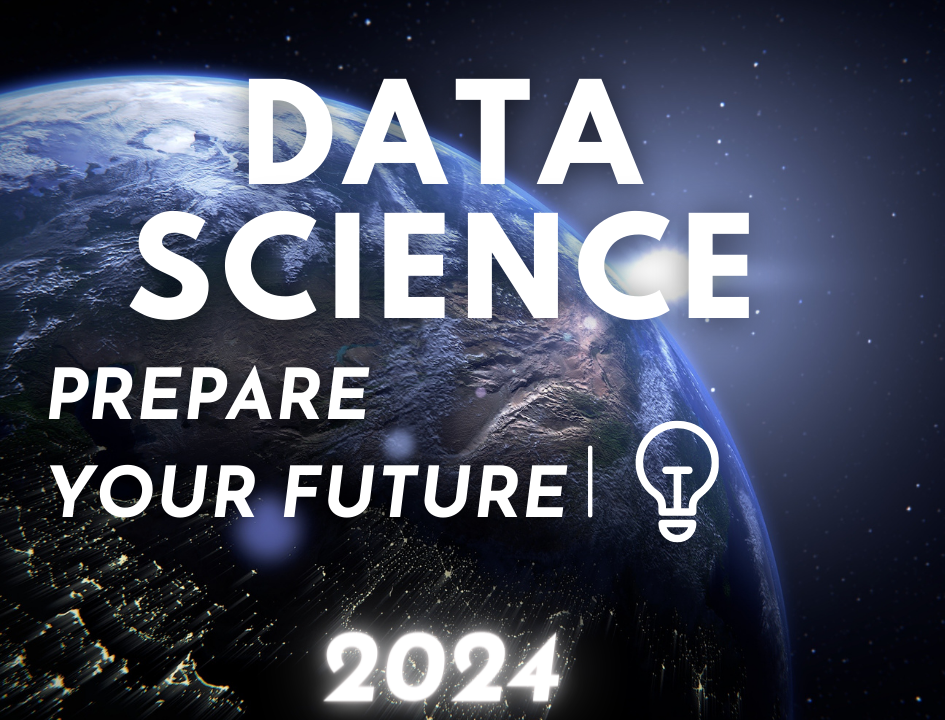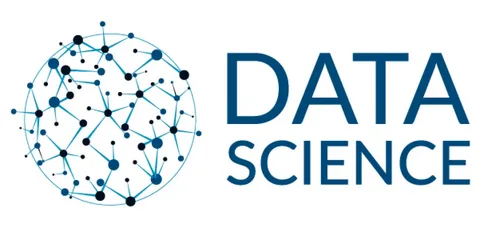
Introduction:
In the rapidly evolving landscape of careers, one field stands out as a beacon of endless possibilities: Data Science. Picture yourself at the threshold of a captivating odyssey—a journey into the heart of Data Science, where every line of code whispers secrets, and every dataset holds the key to unlocking a world of possibilities. Data Science isn’t just a career; it’s an expedition into the uncharted territories of information. With each algorithm you deploy, you navigate through the data-driven cosmos, revealing patterns that were once hidden and unraveling stories that were waiting to be told.
The Growing Demand for Data Science Professionals:

Data science has been gaining immense popularity in recent years, and with good reason. Companies across various industries are realizing the potential of data-driven decision-making and are actively seeking professionals who can harness the power of data. As a result, the demand for data science professionals is on the rise, and it shows no signs of slowing down.
Almost every part of our life in the digital age produces data. From social media interactions to online shopping habits, an enormous amount of information is being created every second. Companies recognize that this wealth of data can provide valuable insights and a competitive edge. That’s where data science professionals come in. They possess the skills to gather, analyze, and interpret this data, helping businesses make well-informed decisions. The ability to transform raw data into actionable intelligence is a prized skill, making data science professionals highly sought after in the job market. Whether it’s in finance, healthcare, or e-commerce, organizations are eager to capitalize on the opportunities that data science presents. So, if you’re considering a career in data science, rest assured that the demand for your skills will only continue to grow.
Exploring the Exciting Opportunities in Data Science

Surging Demand for Data Science Professionals
As organizations across industries strive to make sense of the vast amounts of data at their disposal, the demand for skilled data science professionals continues to surge. With advancements in technology and the advent of big data, the opportunities in this field are as exciting as ever. Companies are keen to tap into the immense potential that lies within their data, and data scientists are the key to unlocking this treasure trove.
Diverse Applications in the World of Data Science
In the world of data science, opportunities are not bound. Whether it’s analyzing consumer behavior to improve marketing strategies, developing algorithms to enhance healthcare outcomes, or creating predictive models to drive business growth, data scientists are at the forefront of innovation. The possibilities seem endless, as every industry, from finance to manufacturing to entertainment, is embracing the power of data. In fact, data science is not only revolutionizing how companies operate but also shaping the way we live our lives. From personalized recommendations on e-commerce platforms to real-time traffic updates on our smartphones, data science embedded seamlessly into our everyday experiences.
Essential Skills for Aspiring Data Scientists
At the heart of these exciting opportunities lies a range of skills that aspiring data scientists must possess. Proficiency in programming languages like Python and R, a strong statistical background, and the ability to work with complex datasets are just a few of the essential skills required in this field. However, it’s not just technical expertise that sets data scientists apart. The ability to think critically, solve problems creatively, and communicate insights effectively are equally crucial for success. In a world where data is abundant, the true value lies in the ability to extract meaningful insights and translate them into actionable strategies. Data science opens up a world of possibilities, and those with the right skillset can pave their way to a thrilling and fulfilling career.
How Data Science is Transforming Industries

With the rapid advancement of data science, industries across the globe are experiencing a transformative shift in their operations. One such sector is healthcare, where data science is revolutionizing patient care. By harnessing the power of big data, healthcare professionals can now analyze vast amounts of patient information to identify patterns and trends. This analysis enables them to make more accurate diagnoses, tailor treatment plans, and even predict potential health risks before they occur. Patients benefit from personalized and efficient care, leading to improved outcomes and reduced healthcare costs.
Another industry that is undergoing a substantial transformation is retail. In the past, retailers relied on traditional market research methods to understand consumer behavior and make informed business decisions. However, with data science, they now have access to a wealth of customer data, such as purchasing habits, preferences, and even social media interactions. By analyzing this data, retailers can gain valuable insights into consumer trends and preferences, allowing them to personalize marketing campaigns, improve product offerings, and optimize supply chain management. Ultimately, this enhances the shopping experience for customers and increases profitability for businesses. Read full article here : https://technorious.com/how-artificial-intelligence-is-now-changing-industries
These are but a few instances of the sectors that data science is transforming. From finance to transportation, education to manufacturing, the possibilities are vast. As organizations continue to harness the power of data, we can expect to see even more innovative ways in which data science transforms the way we work and live.
The Skills Required to Succeed in Data Science
In order to succeed in the field of data science, there are a number of key skills that professionals need to develop. First and foremost, a solid background in statistics and mathematics is necessary. Data scientists need to be comfortable with analyzing large datasets, identifying patterns, and drawing meaningful conclusions from the data. A solid understanding of probability theory, linear algebra, and calculus is therefore crucial to excel in this field.

In addition to mathematical skills, proficiency in programming languages is also vital for data scientists. Python and R are two popular languages commonly used in data science due to their versatility and extensive libraries for data analysis. Being able to write efficient code, manipulate datasets, and run statistical models is essential for any aspiring data scientist. Furthermore, having a strong grasp of SQL (Structured Query Language) is also important for working with databases and extracting relevant information. By combining mathematical skills with programming expertise, data scientists can effectively analyze and interpret data to derive valuable insights.
The Lucrative Salary Potential
In the world of data science, there is a growing demand for professionals who possess the skills and expertise to analyze and interpret vast amounts of data. And one of the most enticing aspects of a career in data science is the lucrative salary potential. Data scientists are highly sought after by companies in various industries, and as a result, they often command high salaries and attractive benefits packages.

Data scientists utilize their knowledge of statistical analysis, programming, and machine learning to extract valuable insights from data that can drive business strategies and decision-making processes. Their expertise is not only valuable but also rare, making their skills in high demand. As a result, data scientists can enjoy competitive salaries that reflect the scarcity and importance of their skillset. Companies are willing to invest in top talent who can transform raw data into actionable intelligence, leading to improved efficiency, cost savings, and ultimately, increased profitability. So, if you’re considering a career in data science, the potential for a generous salary awaits you!
The Flexibility and Remote Work Opportunities
As the field of data science continues to expand and evolve, one of its most attractive aspects is the flexibility it offers to professionals. With the increasing reliance on technology and the ability to store and analyze massive amounts of data, data science roles have become highly sought after in a variety of industries. The beauty of this field lies in its adaptability, allowing data scientists to work from anywhere in the world.

Imagine waking up in the morning and realizing that you have the freedom to work from the comfort of your own home, or even while traveling to exotic destinations. This is the reality for many data scientists today. Whether you prefer to work in your pajamas or from a beachside café, the flexibility that data science offers allows you to create a work environment that suits your needs and preferences. Your laptop becomes your office, and as long as you have a stable internet connection, you can seamlessly collaborate with colleagues and continue making valuable contributions to your projects. Gone are the days of being tied to a traditional desk job; data science allows you to break free from the constraints of a physical office space and embrace a more flexible way of working.
In addition to the freedom to choose your work setting, remote work opportunities in data science also provide an incredible work-life balance. No longer do you have to sacrifice precious time commuting to and from the office, dealing with rush hour traffic, or being confined to a strict 9-to-5 schedule. Instead, you can structure your work hours in a way that aligns with your personal preferences and commitments. Whether you’re a night owl who thrives during late-night coding sessions or a morning person who enjoys starting the day with data analysis, remote work opportunities in data science allow you to create a schedule that optimizes your productivity and well-being. By taking advantage of this flexibility, you can find harmony between your professional and personal life, ultimately leading to a happier and more fulfilling career.
The Ever-Evolving Nature of Data Science
Data science is a field that is constantly evolving, with new technologies, techniques, and methodologies being developed all the time. This ever-changing nature of the discipline is what makes it so exciting and dynamic. As businesses and organizations generate vast amounts of data, the need for skilled data scientists who can interpret and extract valuable insights from this wealth of information becomes increasingly important.
One of the key reasons behind the evolving nature of data science is the continuous advancements in technology. With the rapid development of artificial intelligence and machine learning algorithms, data scientists are constantly learning new techniques and approaches to analyze and interpret data. These advancements enable them to uncover patterns and trends that were previously unnoticed, helping businesses make better informed decisions. Moreover, as more and more industries adopt data-driven practices, data scientists need to stay up-to-date with the latest tools and technologies to remain competitive in the job market.
The ever-evolving nature of data science also stems from the evolving needs and challenges faced by businesses. As industries progress, their data requirements change, leading to new and complex problems that data scientists need to solve. For example, as companies implement automation and digitization, they generate vast amounts of data that require sophisticated analysis. Data scientists needs to remain adaptable and continually update their skills to stay relevant in this fast-paced field.
The Growing Significance of Ethics and Data Privacy
As the field of data science continues to advance, the topic of data privacy and ethics has become increasingly important. With the vast amount of data being collected and analyzed every day, there are growing concerns about how this information is being used and protected. It is crucial for data science professionals to uphold ethical standards and prioritize the privacy of individuals’ data.
One of the key aspects of data privacy and ethics is ensuring that data is collected and used in a responsible and transparent manner. This means obtaining informed consent from individuals before collecting their data and clearly communicating how that data will be used. Data scientists must also take steps to anonymize and protect sensitive information, such as personal identifying details or medical records. By doing so, they can help build trust with both individuals and society as a whole, ensuring that data is used for positive purposes and not for invasion of privacy or discriminatory practices.
In addition to privacy concerns, ethical considerations play a significant role in data science. Data scientists must be mindful of the potential biases that can be embedded in datasets and algorithms, as well as the potential consequences of their work. This includes being aware of issues such as fairness, transparency, and accountability. By actively addressing these ethical challenges, data science professionals can contribute to the development of responsible and beneficial data-driven solutions.
The increasing importance of data privacy and ethics in the field of data science highlights the need for professionals who not only possess the technical skills to analyze data, but also the ethical mindset to protect individuals’ privacy and ensure the responsible use of data. As the field continues to grow and evolve, it is crucial for data science professionals to stay informed about the latest privacy regulations and ethical guidelines. By doing so, they can contribute to building a trustworthy and ethical data science community that harnesses the power of data for positive societal impact.
The Use of Data Science to Address Issues in the Real World
Data science is not just about diving deep into complex algorithms and analyzing data sets; it also serves a greater purpose in solving real-world problems. One of the key roles of data science is in transforming industries and optimizing processes. By leveraging big data and advanced analytics techniques, data scientists are able to uncover insights and patterns that can drive innovation and improve decision-making.
Take the healthcare industry, for example. Data science has revolutionized the way medical professionals diagnose and treat diseases. By analyzing vast amounts of patient data, data scientists are able to identify trends and predict disease outbreaks, leading to more effective prevention and treatment strategies. Additionally, data science has played a crucial role in personalized medicine, tailoring treatment plans to individual patients based on their genetic makeup and other factors. With data science, healthcare providers are able to deliver more targeted and efficient care, saving lives and improving the overall well-being of patients.
Not limited to healthcare, data science also has a significant impact on other sectors such as transportation, finance, and energy. For instance, in the transportation industry, data science is used to optimize routes and schedules, reducing congestion and improving the overall efficiency of public transportation systems. In finance, data science enables more accurate risk analysis and fraud detection, protecting consumers and ensuring the stability of financial institutions. In the energy sector, data science helps optimize resource allocation, leading to more sustainable and eco-friendly practices.
Overall, the role of data science in solving real-world problems cannot be underestimated. It enables industries to make informed decisions, improve productivity and efficiency, and ultimately make a positive impact on society. As data continues to grow in volume and complexity, the demand for skilled data scientists who can unlock its potential will only continue to rise. Data science truly has the power to transform the world we live in.
The Supportive Data Science Community
In the vast and ever-expanding field of data science, one thing remains constant: the unwavering support of the data science community. With a shared passion for exploring the vast possibilities of data, professionals in this field are always ready to lend a helping hand. Whether it’s through online forums, social media groups, or organized meetups, the community is always buzzing with discussions, debates, and knowledge-sharing.
One of the most remarkable aspects of the data science community is its inclusiveness. It welcomes professionals from diverse backgrounds, be it computer science, mathematics, economics, or even arts and humanities. This diversity enhances the collaborative spirit, as individuals can bring forth unique perspectives and insights. The community acts as a melting pot of ideas, encouraging everyone to share their thoughts and learn from one another. From beginners seeking guidance to seasoned professionals tackling complex problems, there is always someone willing to offer advice, resources, or even just a word of encouragement.
On various online platforms like Kaggle and GitHub, data scientists showcase their projects and code, opening up opportunities for collaboration and feedback. This sense of camaraderie extends beyond the virtual realm, with numerous conferences and workshops organized by professionals themselves. These events not only provide a platform to showcase research and advancements but also foster connections and friendships. Whether you’re seeking mentorship, inspiration, or simply a like-minded community to belong to, the data science community has your back.
The supportive nature of the data science community is a driving force behind its impressive progress and growth. Together, these professionals are shaping the future of data science, pushing boundaries, and transforming industries. With an unwavering commitment to collaboration and knowledge-sharing, the community ensures that no one is left behind on this exciting journey of discovery. So, whether you’re just starting out or a seasoned data scientist, rest assured that you’ll find a warm and welcoming community ready to support you every step of the way.
The Future Growth and Stability of Data Science Careers
As technology advances and the demand for data-driven insights continues to grow, it’s no surprise that data science careers are poised for a bright and stable future. With the increasing reliance on data in every industry, professionals with strong analytical skills and the ability to derive meaningful insights from complex datasets will be in high demand.
One key factor contributing to the future growth of data science careers is the explosion of data being generated by organizations of all sizes. From social media interactions and online purchases to sensor data and machine-generated logs, the amount of data available for analysis is only expected to increase. This data boom presents a unique opportunity for data scientists to uncover valuable insights and help businesses make informed decisions. In addition, as companies realize the power of data-driven decision-making, they are investing more resources in building robust data science teams, ensuring a steady demand for skilled professionals in the field.
Another aspect highlighting the stability of data science careers is the interdisciplinary nature of the field. Data science combines elements of computer science, mathematics, and domain expertise to solve complex problems. This versatility enables data scientists to work across various industries, from finance and healthcare to marketing and manufacturing. By being adaptable and continuously updating their skills, data scientists can navigate through different sectors and find stability in their careers, regardless of industry fluctuations.
The Versatility of Data Science Skills
Data science skills are highly versatile and can be applied in a wide range of industries and job roles. From banking and finance to healthcare and marketing, the demand for data scientists is skyrocketing. These professionals have the unique ability to analyze large amounts of data and extract valuable insights that can drive business decisions and strategies. Whether it’s predicting customer behavior, optimizing supply chains, or uncovering hidden patterns, data science skills are invaluable in today’s data-driven world.
Furthermore, the versatility of data science skills extends beyond specific industries. Data scientists can work in various job roles, such as data analysts, machine learning engineers, or even data consultants. Their expertise allows them to contribute to multiple areas of an organization, from research and development to marketing and sales. Additionally, data science skills can be valuable in entrepreneurial ventures, where individuals can use data-driven insights to identify market opportunities, create innovative products, and make informed business decisions. With such versatility, data science skills are becoming increasingly sought after, offering professionals the flexibility to explore different industries and career paths.
The Impact of Data Science on Decision-Making Processes
In today’s fast-paced and ever-changing world, decision-making processes have become more complex than ever before. Traditional methods of decision-making, based on intuition and experience, are no longer enough to tackle the intricate challenges faced by businesses and organizations. This is where data science steps in, with its revolutionary impact on decision-making processes.
Data science, with its advanced techniques and algorithms, allows businesses to harness the power of data and make informed decisions. By analyzing large datasets and extracting valuable insights, data scientists can uncover patterns, trends, and correlations that might have otherwise gone unnoticed. These insights not only provide a deeper understanding of the current state of affairs but also allow organizations to predict future trends and outcomes. With data science, decision-makers can now rely on data-driven evidence to guide their choices, reducing uncertainty and increasing the chances of success.
Imagine a scenario where a retail company wants to introduce a new product to the market. In the past, decision-makers would have relied on market research, surveys, and personal opinions to gauge the potential success of the product. However, with data science, the process becomes much more scientific and accurate. By analyzing historical sales data, customer demographics, and consumer behavior patterns, data scientists can provide valuable insights into the demand for the product, the target audience, and the optimal pricing strategy. Armed with this information, decision-makers can make more informed choices, minimizing the risk of failure and maximizing the chances of capturing the market. Data science has become an indispensable tool in the decision-making toolkit, enabling organizations to make smarter and more impactful choices.
CONCLUDING THOUGHTS:
As we wrap up this insightful article, it’s evident that Data Science is not just a career choice; it’s a gateway to a future filled with opportunities. Data Science not only holds the key to professional advancement but also promises personal growth on a profound level. The skills you cultivate, the challenges you overcome, and the knowledge you acquire become the building blocks of a holistic, fulfilling life. The journey promises not just a career but a transformative experience—a voyage where each challenge is a stepping stone, each skill acquired a beacon, and each opportunity seized a milestone on your path to success. So, with the final words to say, the stage is set for you to step into the spotlight and write the next chapter of your story in the interesting world of Data Science. May your journey be as exhilarating as the insights you uncover and as rewarding as the challenges you conquer.














